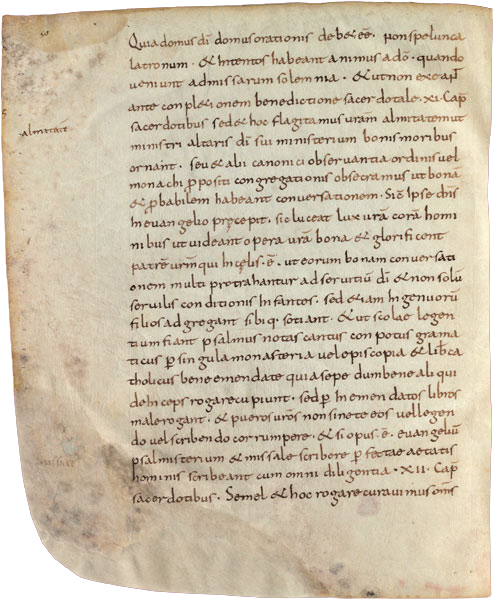789 on:
[Wikipedia]
[Google]
[Amazon]
 __NOTOC__
Year 789 ( DCCLXXXIX) was a
__NOTOC__
Year 789 ( DCCLXXXIX) was a
 __NOTOC__
Year 789 ( DCCLXXXIX) was a
__NOTOC__
Year 789 ( DCCLXXXIX) was a common year starting on Thursday
A common year starting on Thursday is any non-leap year (i.e. a year with 365 days) that begins on Thursday, 1 January, and ends on Thursday, 31 December. Its dominical letter hence is D. The most recent year of such kind was 2015, and the next ...
of the Julian calendar
The Julian calendar is a solar calendar of 365 days in every year with an additional leap day every fourth year (without exception). The Julian calendar is still used as a religious calendar in parts of the Eastern Orthodox Church and in parts ...
. The denomination 789 for this year has been used since the early medieval period, when the Anno Domini
The terms (AD) and before Christ (BC) are used when designating years in the Gregorian calendar, Gregorian and Julian calendar, Julian calendars. The term is Medieval Latin and means "in the year of the Lord" but is often presented using "o ...
calendar era
A calendar era is the period of time elapsed since one '' epoch'' of a calendar and, if it exists, before the next one. For example, the current year is numbered in the Gregorian calendar, which numbers its years in the Western Christian era ...
became the prevalent method in Europe for naming years.
Events
By place
Europe
* KingCharlemagne
Charlemagne ( ; 2 April 748 – 28 January 814) was List of Frankish kings, King of the Franks from 768, List of kings of the Lombards, King of the Lombards from 774, and Holy Roman Emperor, Emperor of what is now known as the Carolingian ...
crosses the Elbe River
The Elbe ( ; ; or ''Elv''; Upper and , ) is one of the major rivers of Central Europe. It rises in the Giant Mountains of the northern Czech Republic before traversing much of Bohemia (western half of the Czech Republic), then Germany and flo ...
with a Frankish
Frankish may refer to:
* Franks, a Germanic tribe and their culture
** Frankish language or its modern descendants, Franconian languages, a group of Low Germanic languages also commonly referred to as "Frankish" varieties
* Francia, a post-Roman ...
-Saxon
The Saxons, sometimes called the Old Saxons or Continental Saxons, were a Germanic people of early medieval "Old" Saxony () which became a Carolingian " stem duchy" in 804, in what is now northern Germany. Many of their neighbours were, like th ...
army into Obotrite territory. He subdues the Wiltzes, and reaches the Baltic
Baltic may refer to:
Peoples and languages
*Baltic languages, a subfamily of Indo-European languages, including Lithuanian, Latvian and extinct Old Prussian
*Balts (or Baltic peoples), ethnic groups speaking the Baltic languages and/or originatin ...
.
* King Pepin of Italy
Pepin or Pippin (born Carloman), (777 – 8 July 810) was King of Italy from 781 until his death in 810. He was the third son of Charlemagne (and his second with Queen Hildegard). Upon his baptism in 781, Carloman was renamed Pepin, where he wa ...
conquers Istria
Istria ( ; Croatian language, Croatian and Slovene language, Slovene: ; Italian language, Italian and Venetian language, Venetian: ; ; Istro-Romanian language, Istro-Romanian: ; ; ) is the largest peninsula within the Adriatic Sea. Located at th ...
on the Adriatic
The Adriatic Sea () is a body of water separating the Italian Peninsula from the Balkans, Balkan Peninsula. The Adriatic is the northernmost arm of the Mediterranean Sea, extending from the Strait of Otranto (where it connects to the Ionian Se ...
, ignoring Byzantine
The Byzantine Empire, also known as the Eastern Roman Empire, was the continuation of the Roman Empire centred on Constantinople during late antiquity and the Middle Ages. Having survived the events that caused the fall of the Western Roman E ...
protests. He establishes a tributary march
March is the third month of the year in both the Julian and Gregorian calendars. Its length is 31 days. In the Northern Hemisphere, the meteorological beginning of spring occurs on the first day of March. The March equinox on the 20 or 2 ...
, and sends missionaries
A missionary is a member of a religious group who is sent into an area in order to promote its faith or provide services to people, such as education, literacy, social justice, health care, and economic development.Thomas Hale 'On Being a Miss ...
.
* Charlemagne issues the '' Admonitio generalis'', which covers education
Education is the transmission of knowledge and skills and the development of character traits. Formal education occurs within a structured institutional framework, such as public schools, following a curriculum. Non-formal education als ...
al and ecclesiastical
{{Short pages monitor